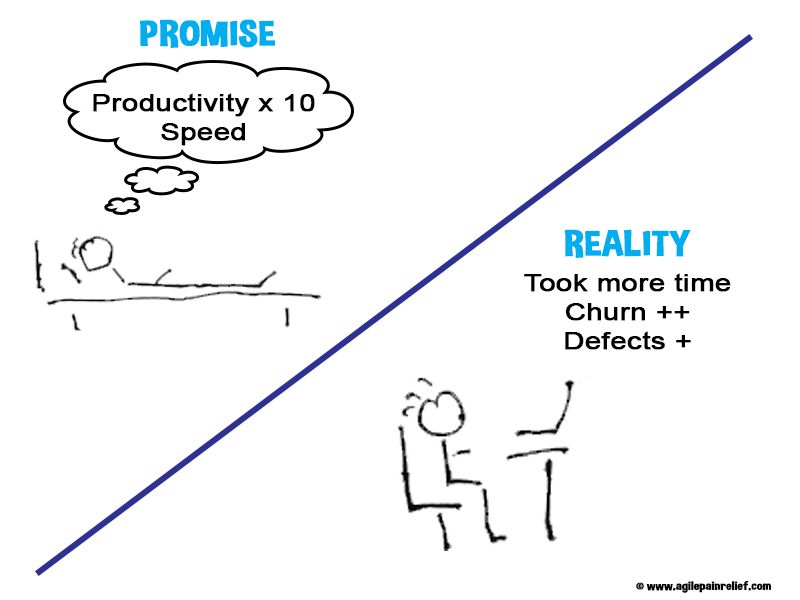When to stop holding retrospectives?
This question often comes up. Usually because a team has become bored with their retrospectives. I suggest you don’t use the same style or format more three times running. The question came up again today with a person saying that their team was doing well and had achieved a steady state. To my mind steady state isn’t the point of Scrum. Scrum is a tool to help you be the best in your industry. Scrum should be a tool you use to disrupt an industry. To that end the next time you tell me that I hear that you’re team is a good as it gets my reply will be: “Ask the team what it would take for them to be the best in their industry, worthy of a case study on Infoq or a major conference presentation. Everything between the team and that case study is an impediment. Go forth and remove the impediments”.
Update I posted this in a bit of hurry - it wasn’t really a full fledged post. To make up I’m adding a section on why people want to stop holding retrospectives:
Complacency
Many teams reach a plateau and assume that they’re done since they can’t make any more improvements right now. It was this belief that I was pushing back against. Sometimes we can’t see where to go from here, but undoubtedly we can all afford to get better. It was to these teams I offered the challenge - what would it take to become a case study in your space?
Boredom
A far bigger problem is boredom. Once the team has experienced the same retrospective style three times in a row, they will become bored. If you’re facilitating watch for people fidgeting, playing with their phones or having side conversations. That’s a good indication that they’re not engaged. If you keep on running the same retrospective read: Agile Retrospectives: Making Good Teams Great (Esther Derby and Diana Larsen) and Collaboration Explained: Facilitation Skills for Software Project Leaders (Jean Tabaka). Google Agile Retrospectives. Read This blog. Whatever you do seek out new styles.
Ineffective
My favorite is the ineffective retrospective. The team walks through the meeting comes up with some SMART goals, they sit on the shelf for the next two weeks and no one acts on them. This is really no better than traditional post mortems. How to make them more effective?
- Ensure your SMART actions are achievable in the next two sprint
- Post the SMART actions on the top of your Story/Task wall - in BIG WRITING
- After a few days start calling attention to the actions at the start of Daily standup, calling more and more attention to them as the Sprint goes on
What other problems do you see with your retrospectives?

Mark Levison
Mark Levison has been helping Scrum teams and organizations with Agile, Scrum and Kanban style approaches since 2001. From certified scrum master training to custom Agile courses, he has helped well over 8,000 individuals, earning him respect and top rated reviews as one of the pioneers within the industry, as well as a raft of certifications from the ScrumAlliance. Mark has been a speaker at various Agile Conferences for more than 20 years, and is a published Scrum author with eBooks as well as articles on InfoQ.com, ScrumAlliance.org and AgileAlliance.org.
